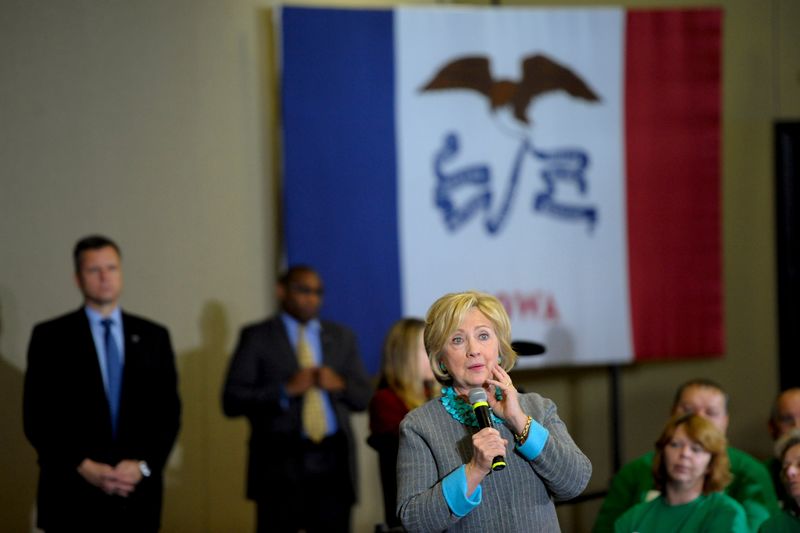By Amanda Becker
WATERLOO, Iowa (Reuters) - U.S. Democratic presidential candidate Hillary Clinton will continue her push to crack down on companies that shift profits overseas, at a campaign stop on Wednesday in Iowa, where she will unveil her plan to rein in the practice, known as earnings stripping.
Clinton is spending this week detailing how she will address tax-avoiding "inversion" deals in which a company buys or merges with a foreign rival and relocates on paper to lower its U.S. tax bill.
Clinton and her campaign have made clear they are viewing the real-life implications of inversion deals through the lens of the $160 billion plan by U.S. pharmaceutical maker Pfizer Inc (N:PFE) to purchase smaller rival Allergan (N:AGN_pa) Plc and move its headquarters to Ireland.
The deal would "leave U.S. taxpayers holding the bag," Clinton said in a statement at the time.
Clinton has called on the U.S. Congress to stop such deals by requiring the acquiring foreign entities to control at least a 50 percent stake in the combined company instead of the 20 percent under current law.
On Monday, her campaign confirmed she will suggest an "exit tax" on the untaxed earnings of corporations that use inversion deals to relocate overseas.
Clinton's campaign said one of the "primary benefits" of the Pfizer-Allergan deal is earnings stripping. She will on Wednesday discuss how she believes that she would have the executive authority as president to address earnings stripping, and encourage the U.S. Treasury Department to use its regulatory authority to "crack down on this loophole."
Earnings stripping is widely used and covers a range of deals that shrink the taxable U.S. profits of multinational corporations, while still allowing them to take advantage of some U.S. tax deductions.
The Treasury Department, after a wave of inversion deals, announced new regulations in September 2014 targeting certain tax-avoidance deals. The regulations did not take on earnings stripping directly, but the department reserved the right to make any future regulation retroactive to that date.
"That was a signal to me that they thought they could do something by regulation," Harvard Law School lecturer Stephen Shay said in an interview.
Shay said the "sentiment in the tax community today is yes there is regulatory authority to do something" about earnings stripping. Shay has written on the topic and has spoken to Clinton's campaign in recent weeks.

Clinton's campaign estimates that closing the "earnings stripping loophole" would raise $60 billion over 10 years that could be used to provide incentives for manufacturing, research and small business.